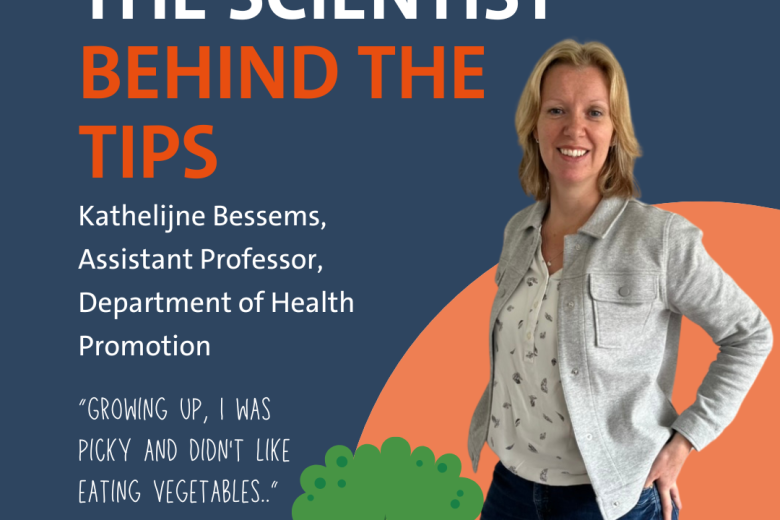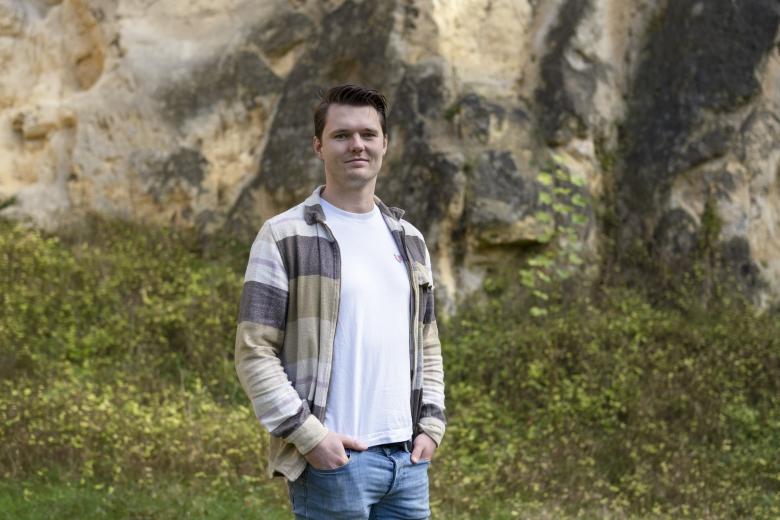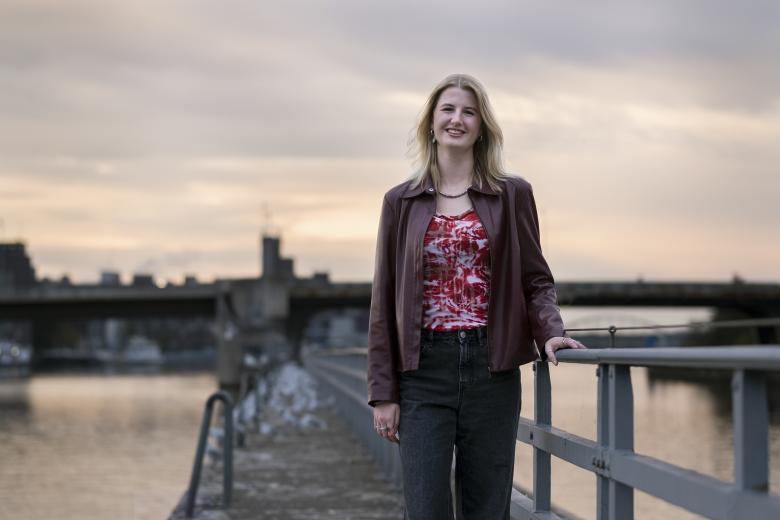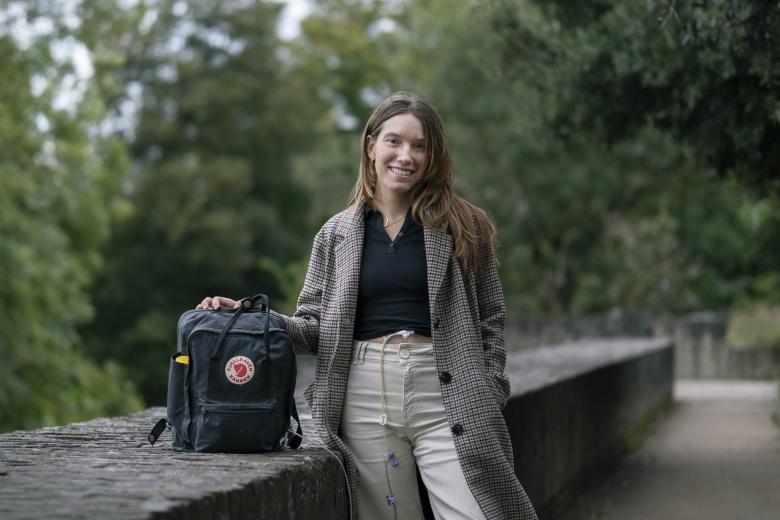Estella: “When you study with a disability, you have a different reality. I don’t compare myself to others anymore”
The day-to-day life of psychology student Estella Jardi Roca differs from that of her fellow students. Chronic illness means she needs more rest than her peers and frequently misses lectures due to hospital visits. But Estella has always been determined to make her dream of going to university a reality. And despite her limitations, she succeeded! What is it like to study with a physical disability? And what tips does she have for others?
Making the impossible possible
Studying abroad has always been a dream of Estella’s. Due to her chronic conditions, she had long assumed it would be impossible—until she decided to take the plunge. “Facing a number of health setbacks made me realise I was determined to make it happen.” Initially she felt nervous, moving so far away from her family. “But I have a Dutch partner now, and a good network in the Netherlands,” she says. “Maastricht has started to feel like home.”
Taking it one day at a time
Estella suffers from arthritis and a connective tissue disorder called Ehlers-Danlos syndrome. These have a major impact on her joints and digestive system. She is tube fed, and infections caused by her medication often interrupt her daily life and studies. All this means she can’t always attend her lectures. “I’m following a modified study programme, because it’s hard to predict how I’ll feel next month or even next week. I have to take it one day at a time.”
Estella has struggled with the fact that she can’t always do what her peers can. “I often used to compare my life to that of other students. Now I realise that my reality is just different. I focus on my own process and appreciate what I can do instead of what I can’t.”
Text continues below the photo.
“I focus on my own process and appreciate what I can do instead of what I can’t.”
Estella Jardi RocaDisability Support
At the start of her studies, Estella approached Disability Support for advice on studying with a disability. “One thing that helps is that I can put in two preferences for course times. Not everybody would be happy with tutorials at 8.30 am, but for me that works well. It gives me more time to rest or schedule doctor’s appointments afterwards.”
She is also allowed to miss more tutorials than other students. “My bachelor’s programme requires you to attend a certain number of tutorials. I’m allowed to skip a few more than the others; sometimes there’s just no other option due to my health or hospital visits.”
Focus on yourself
What advice would Estella give to other students with disabilities? “Focus on yourself and accept that you may not be walking the same path as the average student. You have a different reality, no matter how painful that might be.” She has found that it helps to put her health first. “Don’t push yourself beyond your own limits. If your health is suffering, studying will be difficult, too. You’re better off taking care of yourself.”
Future ambitions
Now she is in her third year, Estella has clear ambitions for the future. Ideally, she would like to concentrate on neuroscience. “I’m keen to learn more about how chronic pain affects the brain, and vice versa. Of course, that touches on my own circumstances. I’d like to be able to help others in this situation.”
Text: Romy Veul
Photography: Joris Hilterman
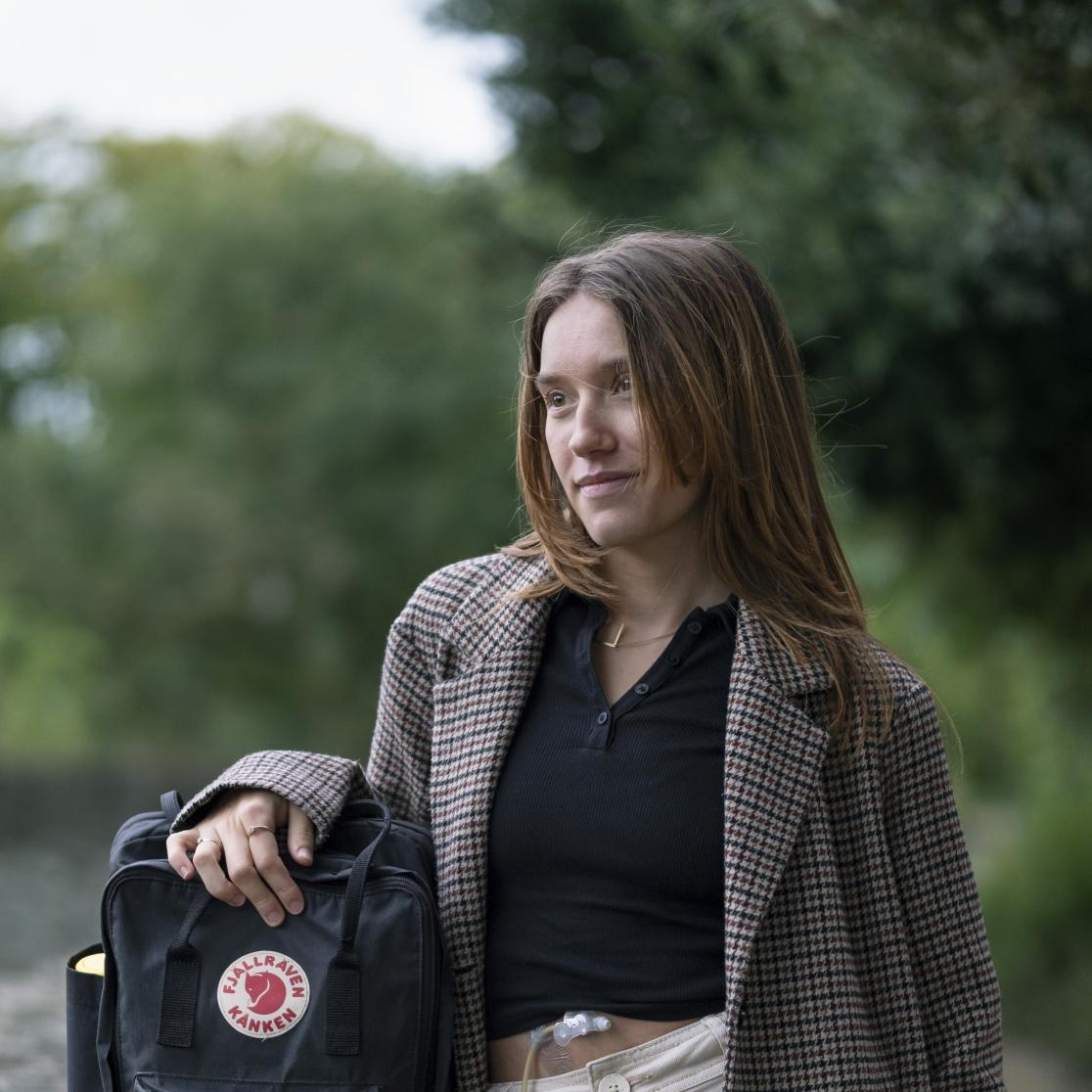
Read more stories about studying with a disability
Also read
-
Europe Day
To celebrate Europe Day on 9 May, FASoS student Lisa travelled to Brussels to meet with five of our inspiring alumni who are currently shaping European policy and advocacy. In this video, they share why Europe Day matters, how it’s celebrated in Brussels, and what the idea of Europe means to them.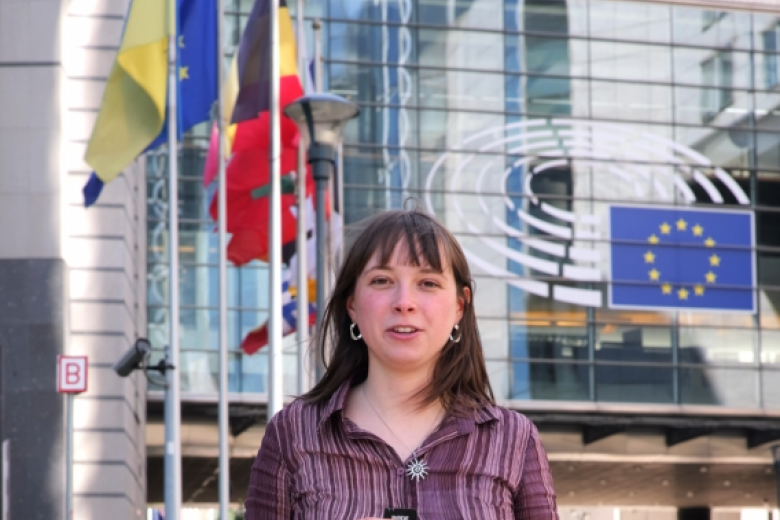
-
The Green Office Catalyses Circularity Projects’ Autonomy
This semester, the Green Office cultivated the untapped potential of the Community Garden and the Clothing Swap Room. We hope that these Circularity Projects will operate under autonomous, functional organisations by this time next year, with continued support from the Green Office and the SUM2030 team... -
Evidence-based health tips for students: the science of eating healthy
In the upcoming months, we’ll share tips on Instagram for our students on how to live a healthier life. Not just a random collection, but tips based on actual research happening at our faculty. The brains behind this idea are L ieve Vonken and Gido Metz, PhD candidates at CAPHRI, the Care and Public...